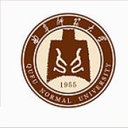Ginsenoside compound K sensitizes human colon cancer cells to TRAIL-induced apoptosis via autophagy-dependent and -independent DR5 upregulation.
Ключові слова
Анотація
Tumor necrosis factor (TNF)-related apoptosis-inducing ligand (TRAIL) is a potent cancer cell-specific apoptosis-inducing cytokine with little toxicity to most normal cells. However, acquired resistance of cancer cells to TRAIL is a roadblock. Agents that can either potentiate the effect of TRAIL or overcome resistance to TRAIL are urgently needed. This article reports that ginsenoside compound K (CK) potentiates TRAIL-induced apoptosis in HCT116 colon cancer cells and sensitizes TRAIL-resistant colon cancer HT-29 cells to TRAIL. On a cellular mechanistic level, CK downregulated cell survival proteins including Mcl-1, Bcl-2, surviving, X-linked inhibitor of apoptosis protein and Fas-associated death domain-like IL-1-converting enzyme-inhibitory protein, upregulated cell pro-apoptotic proteins including Bax, tBid and cytochrome c, and induced the cell surface expression of TRAIL death receptor DR5. Reduction of DR5 levels by siRNAs significantly decreases CK- and TRAIL-mediated apoptosis. Importantly, our results indicate, for the first time, that DR5 upregulation is mediated by autophagy, as blockade of CK-induced autophagy by 3-MA, LY294002 or Atg7 siRNAs substantially decreases DR5 upregulation and reduces the synergistic effect. Furthermore, CK-stimulated autophagy is mediated by the reactive oxygen species-c-Jun NH2-terminal kinase pathway. Moreover, we found that p53 and the C/EBP homologous (CHOP) protein is also required for DR5 upregulation but not related with autophagy. Our findings contribute significantly to the understanding of the mechanism accounted for the synergistic anticancer activity of CK and TRAIL, and showed a novel mechanism related with DR5 upregulation.



